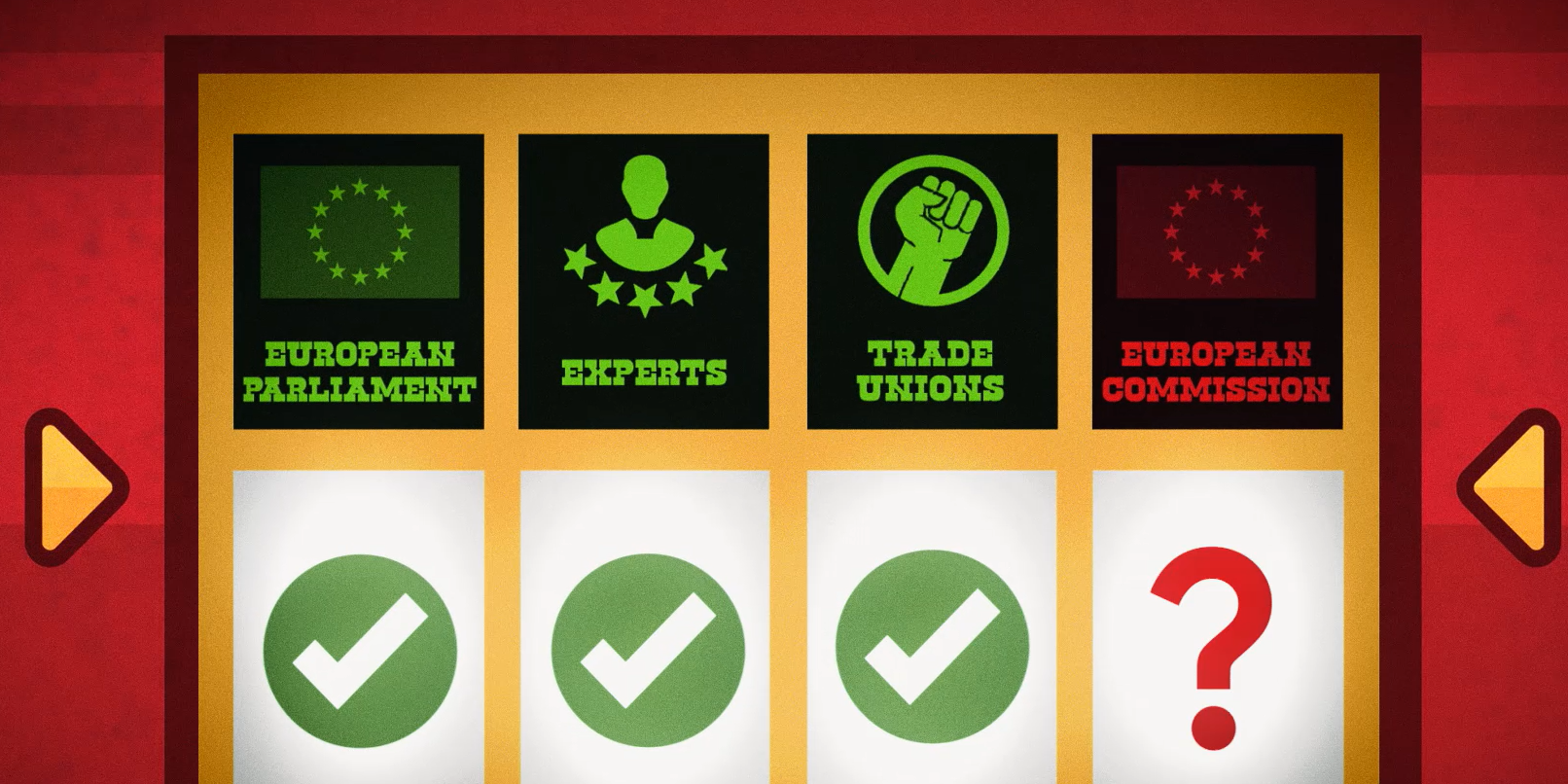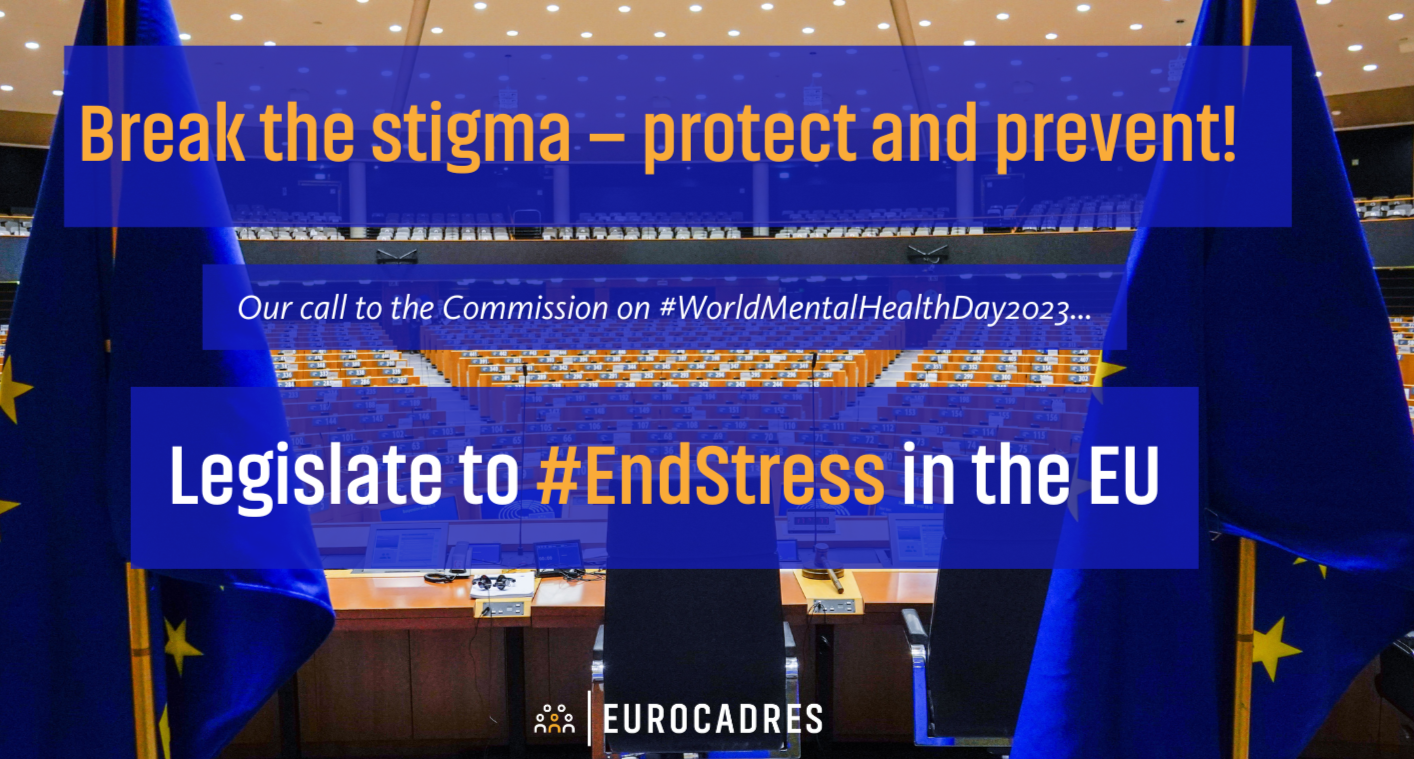
Break the stigma – protect and prevent!
Action, not words, on mental health day.

October 10th is World Mental Health day, and yet another opportunity for us all to reflect on the difficulties facing friends, family, colleagues and other citizens. As with most annual events, it will be an occasion to benchmark where we are in addressing the issue, and for reflection on what more can be done. Following the publication of their Comprehensive Approach to Mental Health this summer, the European Commission will mark the date through a high-level event, taking place from 09:00 – 13:30.
While this Commission have undertaken a number of positive activities to address mental health, our workplaces remain unsafe.
The pandemic certainly placed our mental health in focus, but the stigma is yet to be fully broken. Ensuring that the mental wellbeing of employees receives the same legal protection as physical risks is central to this – removing the onus on workers and instead placing uniform minimum standards in all European workplaces.
Awareness raising has not delivered results thus far, with no evidence that we are moving in the right direction. We again say to the Commission – It’s time for a directive on work-related psychosocial risks!
Institutional expertise has come around to our affirmation that only legislation can deliver full protection for workers, with the European Parliament’s Research Service (EPRS) stating in May that “new EU legislation in this area could create greater uniformity across Member States, setting minimum standards and ensuring that legislation covers new and emerging psychosocial risks”. In their report, compiled at the request of the EMPL committee, a stark recommendation stands out:
“A new EU Directive should refer to psychosocial risks in concrete and specific terms, address psychosocial risks … The legislation should be universally applicable to all workplaces, with accompanying guidance for employers in different sectors and enterprises of different sizes”
Our viewpoint has been echoed not only by the European Parliament, but also by the EESC, with their opinion, “Precarious work and mental health”, tabled by rapporteur José Antonio Moreno Díaz, proposing the adoption of “specific EU legislation on preventing psychosocial risk as well as developing and modernising the current directive on occupational safety and health”. The Council conclusions on the same topic have also called on the Commission to “reflect on an adequate policy for addressing psychosocial risks based on the legal obligations laid down in the Framework Directive 89/391/EEC, adapted to the new realities affecting the world of work and paying particular attention to their impact on workers’ mental health”.
While the Commission have promised action in the medium term, how many World Mental Health days will go by before workers see action, not only words?
